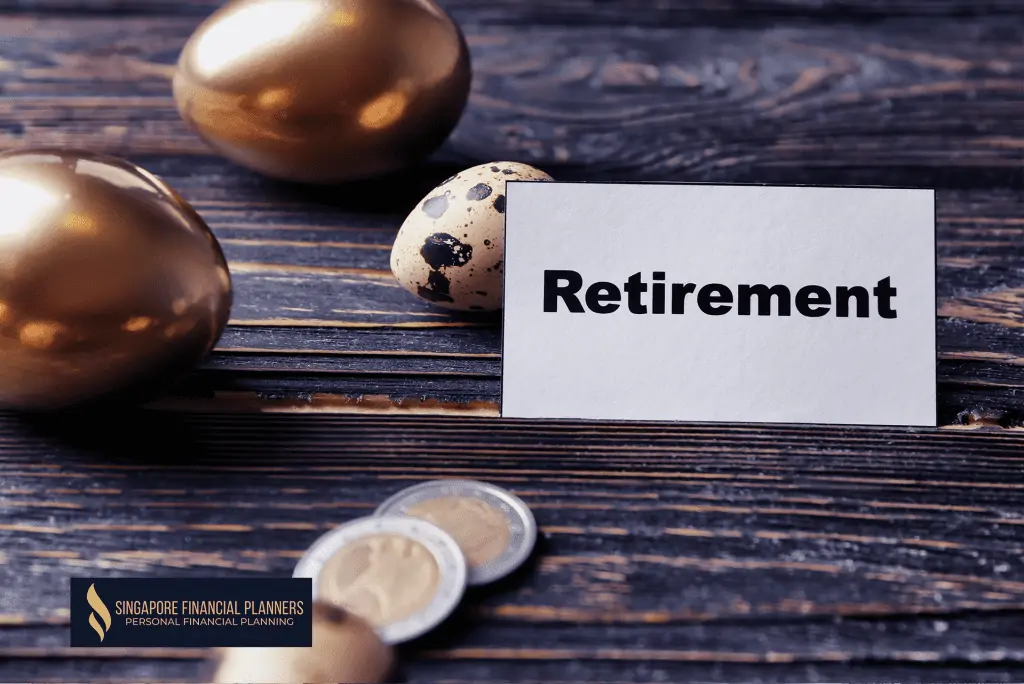After opening an SRS account and accumulating funds inside, you’re beginning to wonder if there’s a way to best utilise them.
The 0.05% returns on it aren’t gonna cut it. Heck, that’s not even close to countering inflation!
Here, we’ll give you a list of all the Supplementary Retirement Scheme investment and insurance options in Singapore.
13 Best SRS Investment & Insurance Options
- Fixed Deposits
- Bonds
- Singapore Savings Bonds
- Stocks
- Mutual Funds or Unit Trusts
- ETFs
- Robo Advisors
- Cash Management Accounts
- REITs
- Regular Savings Plan
- Annuities (Insurance)
- Endowment Plans (Insurance)
- Investment-Linked Policies (Insurance)
1. Fixed Deposits
You may be uncomfortable with taking risks with your investments – especially your retirement funds. Fixed deposits may be the way to go in times like these.
Fixed deposits are practically risk-free and totally safe, so you have nothing to worry about.
Fixed deposits are a way to gain guaranteed returns on your investments that are typically greater than savings accounts.
There are many advantages to choosing fixed deposits. The level of ease and simplicity is what draws people towards fixed deposits.
They require zero knowledge, and depositing them is extremely simple.
You just have to hand over the money you’d want to deposit and the banks will give your principals at the end of the term.
However, we should keep in mind that interest rates for fixed deposits are generally lower compared to other types of investments.
But if we want to play it safe with our money, we can try out fixed deposits and see elevated returns over the years.
Read more about fixed deposits in Singapore.
2. Bonds
Bonds have been the premier go-to choice for investors to build up their portfolios over the years due to their “lower-risk ” nature.
When we own a bond, we loan our money to the bond issuer.
During this period, they are obliged to make coupon payments promised.
This continues until the bond reaches maturity.
Over the years, bonds have been made available for investors in Singapore and have become a popular choice for investments.
And these bonds remain a good option for you if you’re looking to invest your SRS funds.
With the use of your brokerage account, you can purchase these bonds in the stock market to see better returns for your SRS funds.
Read more about bonds in Singapore.
3. Singapore Savings Bonds
When talking about bonds, it’s difficult to not mention the Singapore Savings Bonds to fellow Singaporeans.
Fortunately for everyone, we can purchase the Singapore Savings Bond using our Supplementary Retirement Scheme funds.
Investors are drawn towards SSBs as they are typically free from risks, and we don’t have to panic over losses or dips in the percentages.
We can also invest the minimum sum of S$500, which presents itself as being a low investment opportunity.
However, the interest returns can also be significantly lower than other forms of investments, along with the fact that there is a limit on how much we can invest in Singapore Saving Bonds.
You can think about balancing your portfolio by investing in other financial instruments where you’ll be able to increase your returns in the long run.
More options here as we go on.
Read more about the Singapore Savings Bonds here.
4. Stocks
Investing in stocks is one of the most profitable choices you can make with your investments.
You can watch your stocks grow, which will give a heap of your investments a chance to grow and expand.
Getting to learn the market is a good idea so that you will possibly see gains and good returns on your investments.
However, stock investing is the highest risk option amongst all the options you have in this list.
Despite proper research, your stocks are still highly susceptible to market fluctuations.
Even blue-chip stocks have plummeted in the past. A risky option if you don’t know what you’re doing.
It’s more of a go big or go home approach.
Read more about investing in stocks here.
If you’re looking for wealth accumulation but would like to better manage your risks, the following options are for you.
5. Mutual Funds or Unit Trusts
An alternative to buying stocks, bonds, or other asset classes individually, mutual funds or unit trusts pool investors’ funds to buy a basket of bonds or stocks.
The funds are mainly managed by firms that professionally deal in handling unit trusts.
With unit trusts, you let the fund managers handle your investments, and you don’t make changes to what you’ve invested in as you allow experienced professionals to boost your wealth.
With mutual funds, there are so many levels of diversification for investment opportunities. The liquidity aspect also allows investors to withdraw the units at any given time.
It also gives you the flexibility to invest in lesser amounts if you want to do so.
Access to investing is easy as well since you can do so right away and from virtually anywhere. This is made possible through the brokerage firms that make it easy for us to invest.
Otherwise, your financial advisor can do it for you via the iFAST platform, Aviva Navigator, or ILPs – more on the latter later.
Read more on unit trusts.
6. ETFs
ETFs are abbreviations for Exchange Traded Funds. ETFs, similar to unit trusts, pool money from investors to invest in a basket of assets.
The main difference is that ETFs are passively managed while involving lower fees as compared to unit trusts.
As there are lower fees involved, even when the market is not performing well, it will not affect your returns as severely as unit trusts.
A long-popular option with investors, ETFs are definitely something you can consider investing your SRS monies in.
Read more about exchange-traded funds.
7. Robo Advisors
Robo advisors are financial advisors that are… well… robots.
Their primary purpose is to provide assistance and financial guidance with very little involvement of humans.
With the help of robo advisors, you can lean on them to entirely manage your SRS investments.
Also, a large sum of capital is not required for robo advisors.
Depending on your risk tolerance, there are various portfolios that you can choose from.
With lower management fees, fairly decent returns, and a “let-go” approach, you can definitely give a shot as the risks are comparatively lower than other mediums.
Read more about robo advisors here.
8. Cash Management Accounts
When talking about robo advisors, its cash management accounts are worthy of mention.
Cash management accounts are meant for shorter-term savings that you have that you can’t afford to lose due to an upcoming expense you expect.
Instead of investing and risking this amount, you put your savings in cash management accounts so that they will provide better returns than your savings account, fixed deposits, and SSBs.
With more flexibility, this is a great option for you to have better returns than the 0.05% offered or while waiting for a good market opportunity.
Read more on cash management accounts.
9. REITs
Real estate – Singaporean’s favourite investment option. Unfortunately, you can’t purchase properties with your SRS funds.
However, Real Estate Investment Trusts (REITs) is a way for you to get into the property market.
Since REITs are investments in a collection of properties, you’ll see gains with lesser risks as compared to individually purchasing properties.
There are different types of REITs – Commercial, retail, industrial, hospitality, healthcare, residential, and other trusts.
If you wish to make any investments in these areas, you can do so through your broker with the Singapore Stock Exchange.
However, with the rise of working from home and digitisation of many industries, the future for properties seems fairly uncertain.
Will shopping in malls resume? Will businesses still rent offices?
Something you’d have to think and read about before investing your SRS monies in REITs.
Read more about REITs in Singapore.
10. Regular Savings Plan
A Regular Savings Plan (RSP) is an investment opportunity for new investors who have zero to little knowledge in growing their wealth.
All you have to do is set how much money you’d like to invest every month (starts at $100), open a broker account, and which funds you’d like!
The fees on RSPs are fairly low and your risks are fairly managed as you’re investing in a basket of companies as compared to individual stocks.
That is if you’re buying ETFs and unit trusts with a regular savings plan. Otherwise, you can use RSPs to purchase stocks as well!
A good way to grow your SRS account I must say. Low fees and a low starting amount if you’d like to invest in unit trusts and ETFs.
Read more about regular savings plans here.
11. Annuities (Insurance)
The first type (and most popular type) of insurance policy for SRS are annuity plans.
Annuities are primarily used to give out additional retirement benefits and income. By investing in annuities, there is no limit on how much you can invest or how much money you can put into them from your Supplementary Retirement Scheme.
In an annuity, the investor pays a sum of money, be it immediately or in instalments, and the investor receives periodic payments at a later date.
However, the annuities you can invest in are mostly single premium or recurring single premiums with your SRS funds.
Despite that, annuities are one of the most popular options to invest SRS funds with.
They provide a guaranteed income portion so that you know what’s the exact amount you’ll receive when you retire.
A non-guaranteed portion is also there as a “bonus” on top of your guaranteed income! This amount ranges anywhere up to 4% depending on the participating fund performance.
Also, as an insurance product, they also provide coverage for death and terminal illness – which means that you will receive your total premiums paid should any of these happen to you.
Not only that, some policies are capital guaranteed after a certain number of years so you’ll know that if you surrender the policy before maturity, you get your full amount back.
Given that your SRS is to supplement your retirement, this option is potentially the “safest” while providing you with capital growth, guaranteed income, and guaranteed capital.
Click here to read more about annuities.
Here are some annuities that allow you to invest your SRS funds:
- Manulife RetireReady Plus III
- Aviva MyLifeIncome III
- NTUC Income Gro Annuity II
- NTUC Income Gro Retire Flex (Previously SP Sail and Gro Retire Wise)
- AXA Retire Happy Plus II
12. Endowment Plans (Insurance)
The second type of insurance policy that you can buy with your SRS is the endowment plan.
Endowment plans help you save money. After the policy matures, the savings accumulate into a lump sum that can be claimed.
Endowment plans come in handy for various reasons. However, endowment plans for SRS are obviously meant purely for your retirement.
The biggest reason why you should invest in an endowment plan is due to its participating fund (similar to annuities) that performs up to 4%, insurance coverage, and low-risk factor.
Furthermore, your capital is guaranteed if you hold your policy till maturity.
The only difference between endowments and annuities is that you will receive a lump sum amount here as compared to retirement income.
So if you’re looking to make large withdrawals for yourself, an endowment plan might be more attractive as compared to an annuity.
Read more about endowment plans.
Check out our list of the best endowment plans in Singapore.
Here are some endowment plans that allow you to use your SRS monies:
- Manulife ReadyBuilder
- NTUC Income Gro Gen Saver
- AIA Smart Wealth Builder
13. Investment-Linked Policies (Insurance)
The last type of insurance for your SRS is the investment-linked policy.
Traditionally, investing in investment-linked policies (ILPs) means it provides both the protection you need and the investment returns that you expect.
With 101-wrappers, or what we like to call investment-focused ILPs, you are investing your money through a policy that offers bonuses, death benefits, terminal illness benefits, and TPD benefits that you don’t get if you invest your money on your own.
This means should anything happen to you during a market downturn, you receive the higher of your account value or the premiums you paid.
If you’re investing via a broker, if you pass on during a market downturn, you will only receive your account value – which could be lower than the total investments you put in.
This is what makes ILPs an attractive investment option – even for SRS accounts.
You get the best of wealth accumulation and coverage mentioned so that your retirement sums are sufficiently protected.
You also don’t have to worry about choosing and managing your funds – that’s the job of your financial advisor.
Of course with all investments, there are risks involved.
But if you’re looking for something hands-off while still growing your retirement funds, ILPs could be for you.
Read more about investment-linked policies.
Here are some ILPs that you can use to invest your SRS funds:
- AXA Wealth Invest
- NTUC Income GrowthLink
- Manulink Investor
Conclusion
While there are a plethora of investment opportunities through the Supplementary Retirement Scheme, the choice at the end of the day is to invest in what suits and meets your financial goals.
The SRS gives us major advantages to help us save on tax and also empowers us to get ready for our retirement years through investing.
Investing beforehand allows us to set up a firm foundation for financial stability even after we retire.
It is important that we do not delay our retirement plans just because we don’t see benefits right away.
Instead, we should lay out goals for our future and prepare ourselves for what’s to come, especially due to the level of economic uncertainty in this day and age.
Through logical investments, we could see financial growth in gradual amounts of time, allowing us to provide better lives for ourselves and our loved ones.
If you’re not sure about what you can and should do with your SRS funds, talk to a financial advisor who can guide you so that you can achieve the retirement goals you want.










